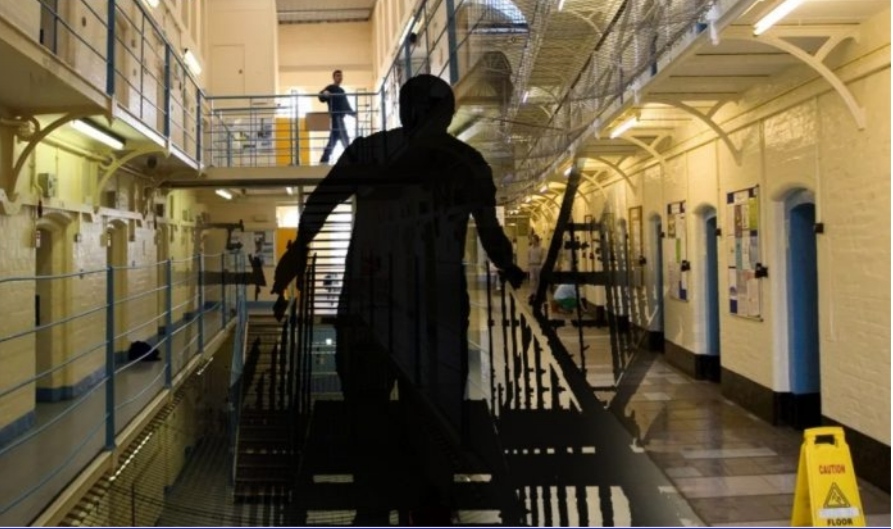National scandal centering prison crisis in England and Wales
By M A Hossain

The state of prisons in England and Wales is a national scandal, revealing deep-seated issues that have been allowed to fester for years. The findings of an exclusive investigation by open Democracy have cast a harsh light on the appalling conditions faced by inmates, characterized by safety concerns, inadequate clothing, poor hygiene, and insufficient healthcare. These issues underscore a systemic failure that former Conservative prisons minister Rory Stewart describes as “the most shameful single aspect of society.”
Dr. Maria Leitner’s experience at HMP Styal encapsulates the dire conditions many prisoners endure. Upon her arrival, she was handed a Hello Kitty T-shirt, leggings, and a pair of trainers-clothes she wore daily for 18 months, even as they became threadbare and inadequate for winter weather. Leitner’s experience is not an isolated case. Many women in prison are reportedly wearing flip-flops in the snow and lack access to basic clothing, such as coats and appropriate footwear, according to a report by the official prison inspectorate.
The inadequate provision of clothing extends to underwear, with Leitner being forced to tie her oversized underwear in knots to keep them in place. More than 20% of prisoners do not have access to clean clothes every week in 65 prisons, further highlighting the neglect and inhumanity embedded in the system. HMP Eastwood Park reported that only 57% of women had enough clean clothes each week, while in HMP Styal, there was a severe shortage of prison-issue clothing and underwear for women.
The investigation by open Democracy, which analyzed prisoner survey data and reports by the inspectorate, reveals several alarming trends:
Safety Concerns: Over half of the inmates in 35 prisons feel unsafe, with a quarter of prisoners experiencing threats or intimidation from fellow inmates and 13% reporting physical attacks.
Violence and Abuse: Nearly one in ten prisoners reported being physically assaulted by staff members.
Hygiene Issues: In 26 prisons, fewer than 80% of prisoners can shower every day, with HMP Winchester showing a staggering 93% of inmates unable to do so.
Victorian Facilities: A quarter of prisoners are housed in crumbling Victorian-era facilities, often without in-cell sanitation, forcing them to use bins as makeshift toilets.
These conditions are exacerbated by systemic neglect and a punitive attitude among prison staff, who often dismiss legitimate complaints about inadequate clothing and hygiene with responses like, “You’re in prison, you get what you’re given.”
Years of austerity have taken a significant toll on the prison system. Funding for prisons dropped from £4.4 billion in 2010 to £3.6 billion in 2015/16, during David Cameron’s tenure as Prime Minister. Although funding has increased slightly since then, it remains below the levels of 14 years ago, while the prison population has ballooned to the largest in Western Europe. Two-thirds of prisons are now overcrowded, with cells holding more prisoners than they were designed for.
Andrew Neilson, director of campaigns at the Howard League for Penal Reform, notes that overcrowding and underfunding make it impossible to provide prisoners with decent living conditions, healthcare, and support, thereby perpetuating a cycle of reoffending.
The neglect extends to healthcare, both physical and mental. Leitner’s diabetes management deteriorated in prison due to the unavailability of insulin and other essential medical supplies. Her experience of collapsing and being chained to a prison officer in the hospital underscores the cruel indifference to inmates’ health needs. Only 12% of prisoners rate healthcare as “very good,” and mental healthcare fares even worse, with only 13% rating it positively. Over half of the prisoners in 49 male prisons reported that their mental health had worsened since incarceration.
The systemic failures in British prisons have attracted international concern. In 2023, a German court refused to extradite a man to the UK, citing the inhumane conditions in English and Welsh prisons as a violation of human rights. The Ministry of Justice attempted to reassure German authorities by claiming that prisoners spent a considerable amount of time outside their cells, but open Democracy’s investigation contradicts this, revealing that nearly three-quarters of prisoners in HMP Wands worth spend less than two hours outside their cells during the week.
The investigation found that 7% of prisoners believe their time in prison made them more likely to reoffend, while a third said it would make no difference. The reoffending rate is particularly high for those who served custodial sentences of less than 12 months, at 56.1%. This not only devastates individuals and their families but also costs taxpayers £18 billion annually. Chris Atkins, a former inmate and author, highlights that the majority of crimes are committed by repeat offenders, indicating that the prison system is failing to rehabilitate and reintegrate individuals.
There is a growing consensus among experts and advocates that the prison system in England and Wales needs urgent reform. Sonya Ruparel, CEO of Women in Prison, argues for investment in community-based services to address the root causes of crime, such as domestic abuse, mental health issues, and housing instability, rather than relying on incarceration.
UN Special Rapporteur on Torture, Alice Jill Edwards, warns that neglecting prisons and prisoners leads to repeat reoffending, undermines community safety, and results in inhumane conditions. She calls for a reversal of these worrying trends.
In response to the mounting criticism, a spokesperson for HM Prison Service stated that all prisons have measures in place to ensure inmates can stay clean and decent and that new, modern prisons are being built at a rapid pace. The government has also invested £100 million in security measures to combat contraband and violence in prisons. However, these measures fall short of addressing the systemic issues highlighted by the investigation.
The crisis in England and Wales’ prisons is a profound moral failing that reflects broader societal attitudes towards punishment and rehabilitation. The investigation by open Democracy has laid bare the inhumane conditions and systemic neglect that define the prison system. Without significant reform and a shift towards addressing the root causes of crime, the cycle of incarceration and reoffending will continue, to the detriment of individuals, families, and society as a whole. It is imperative that the government takes urgent and meaningful action to rectify these failings and restore dignity and humanity to the prison system.




